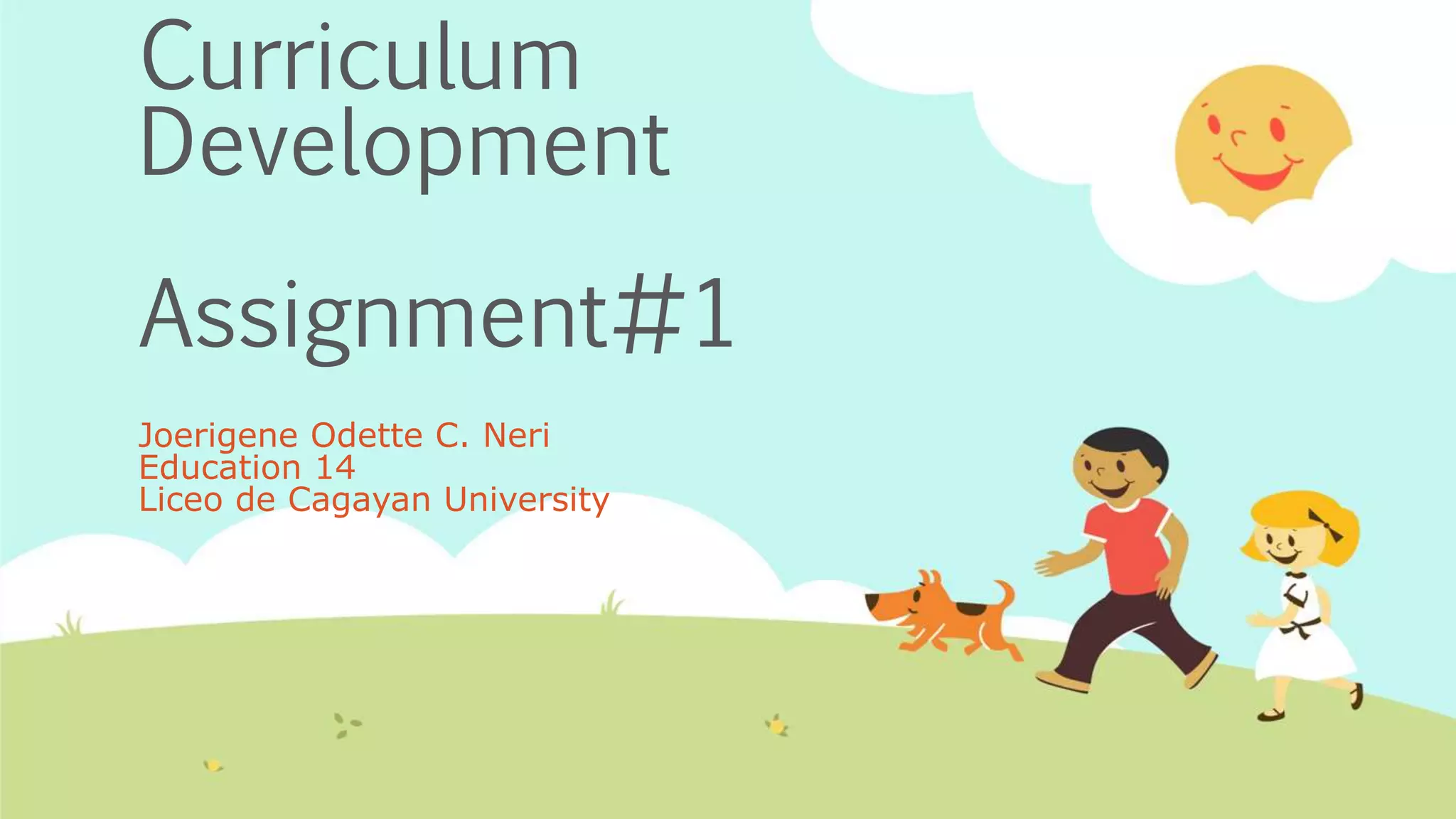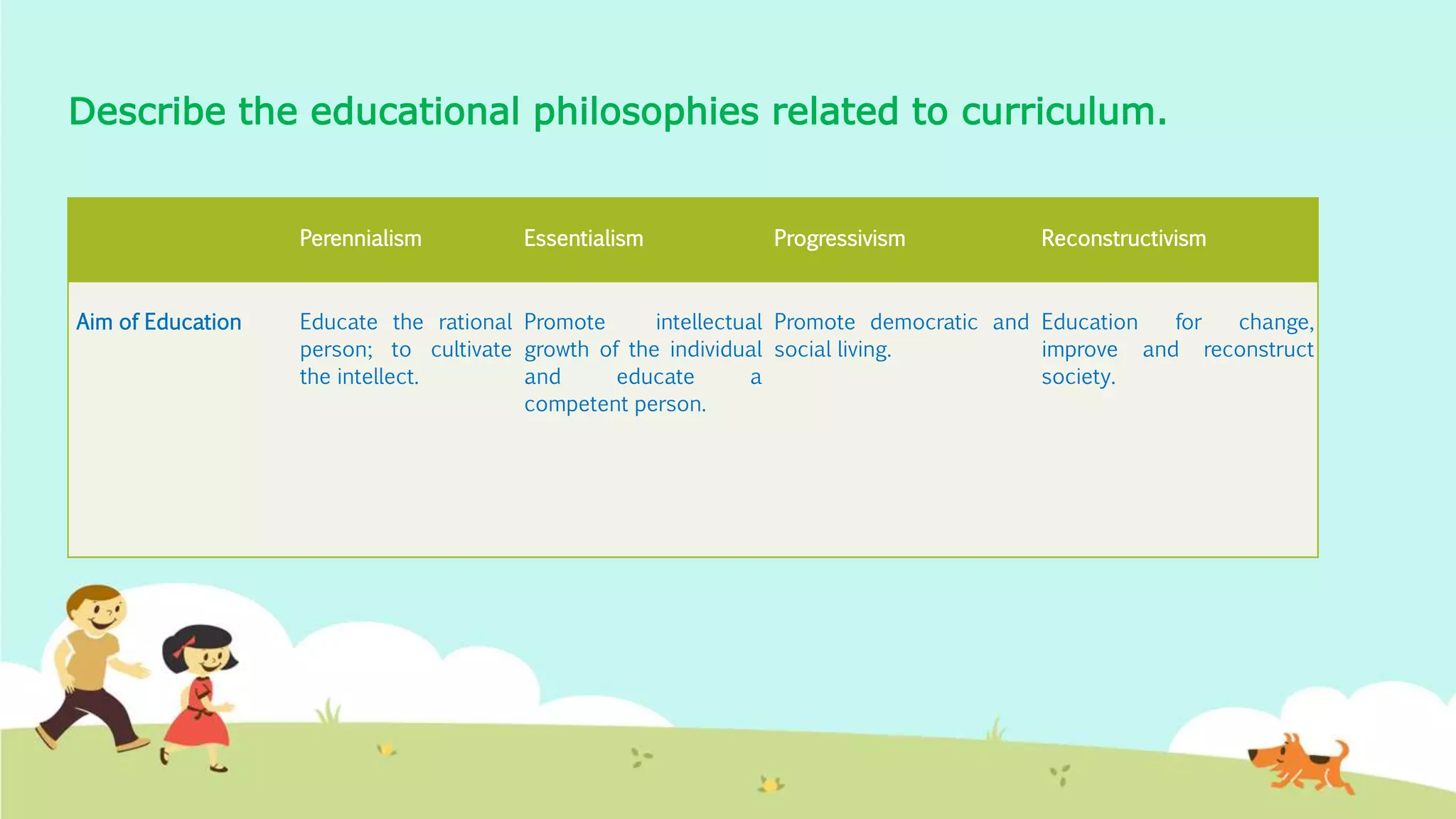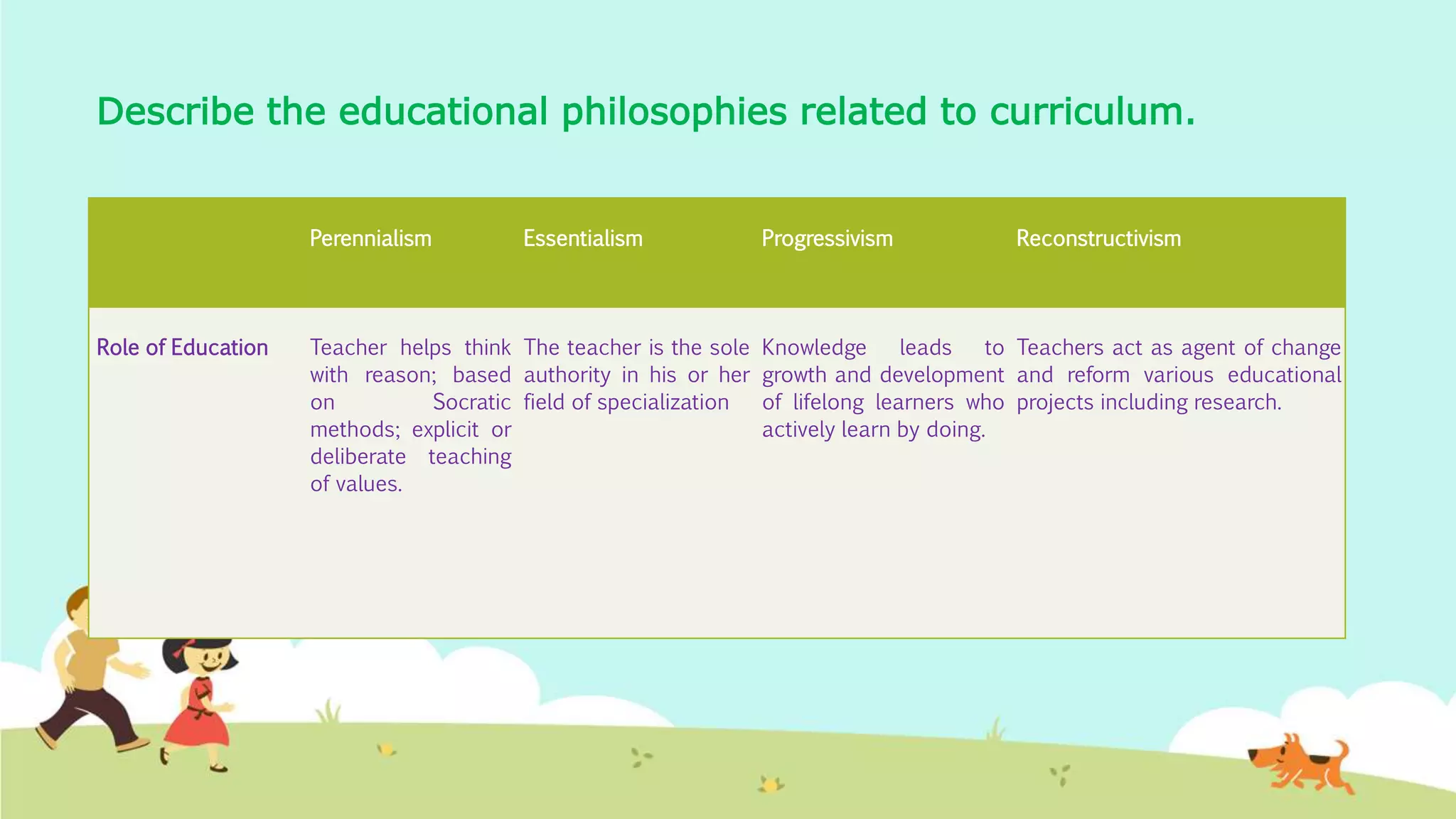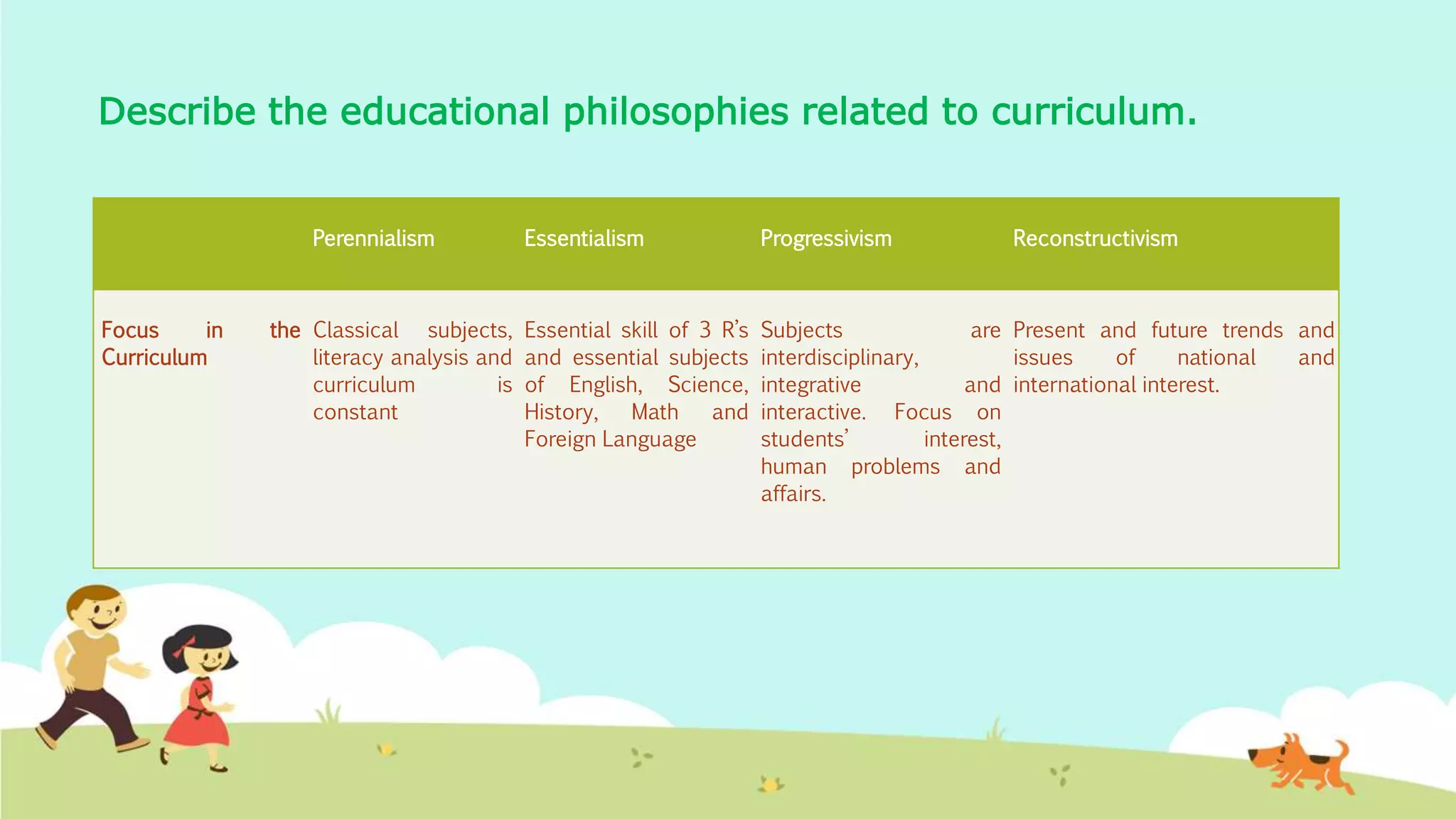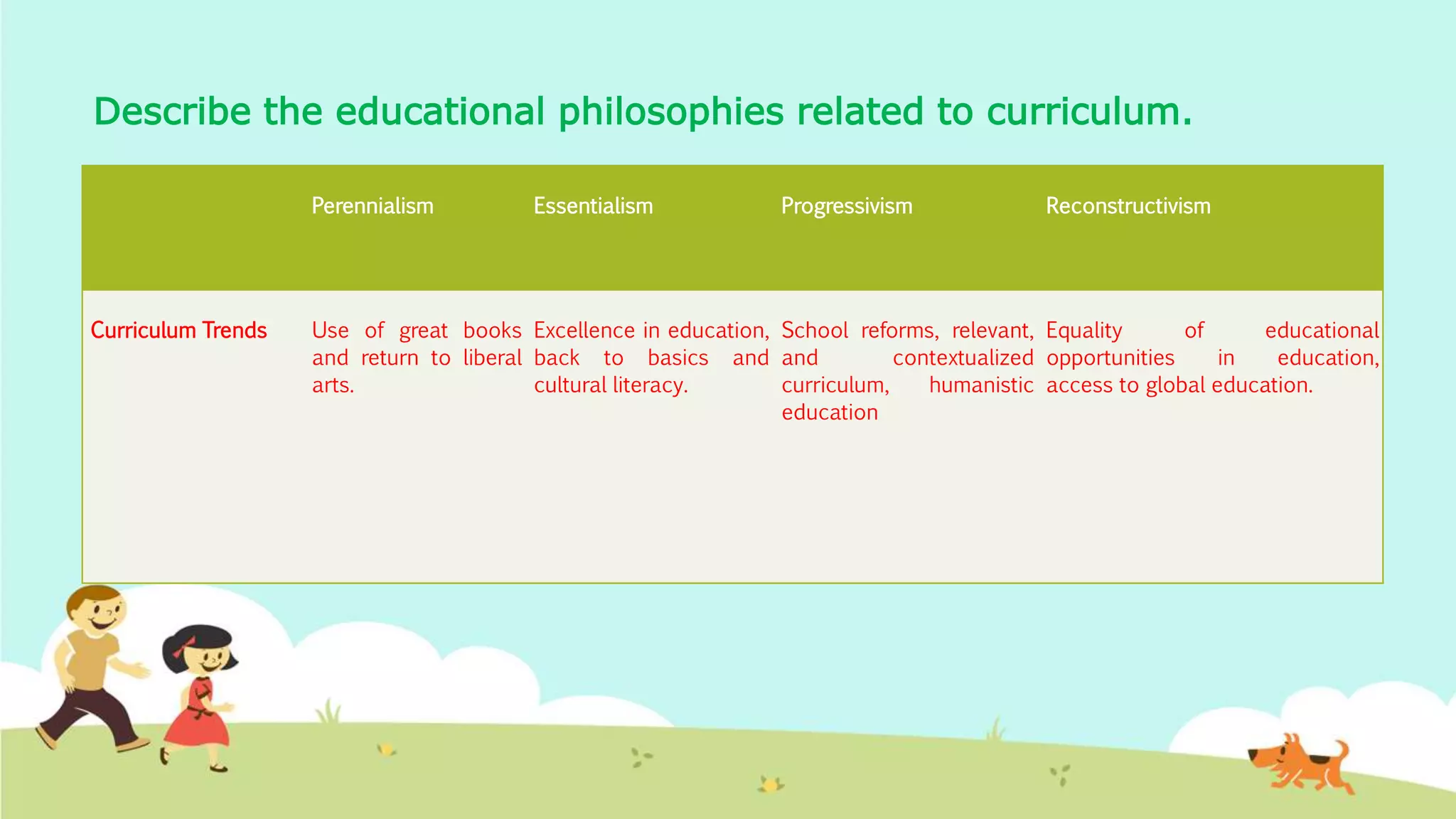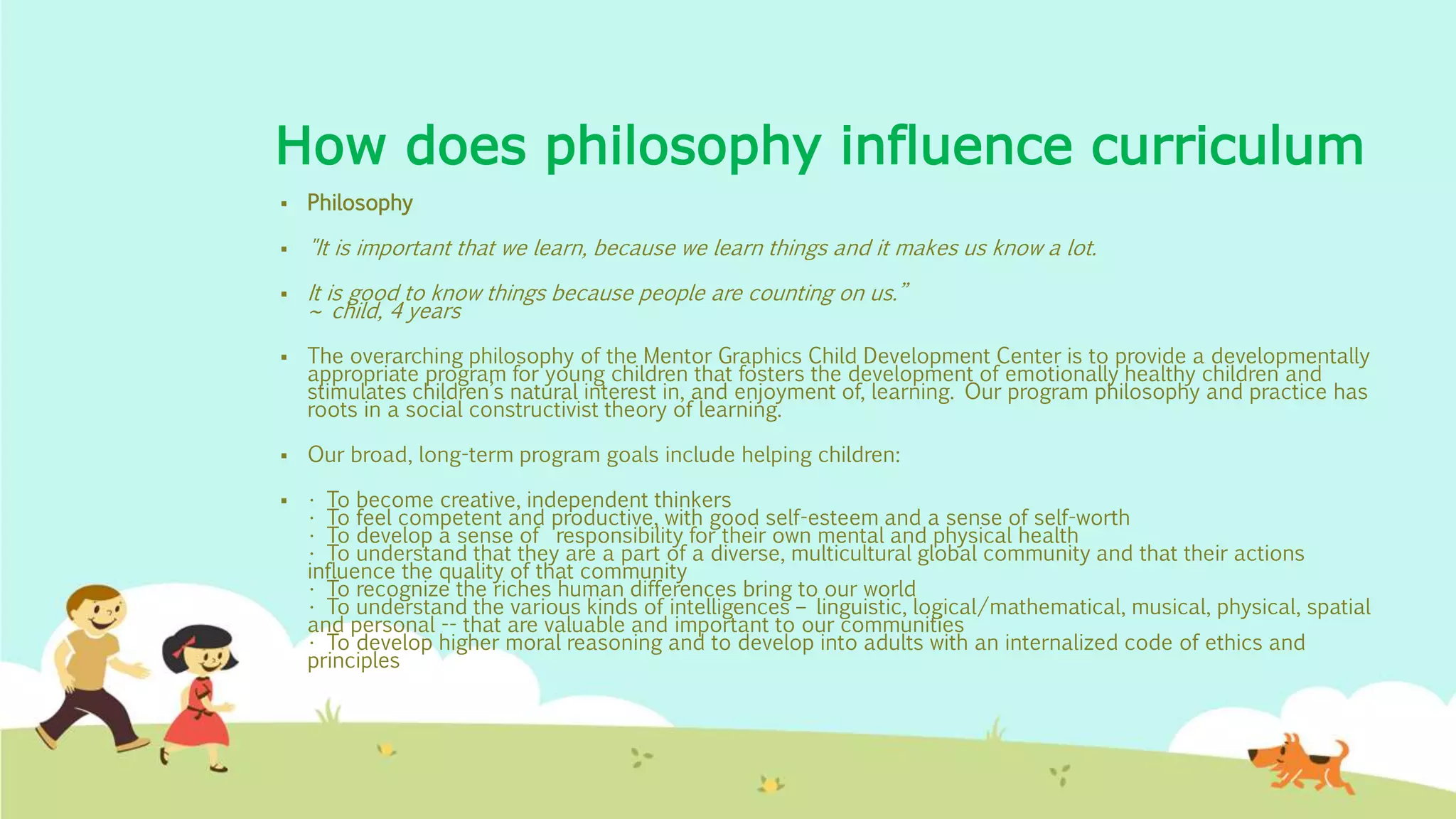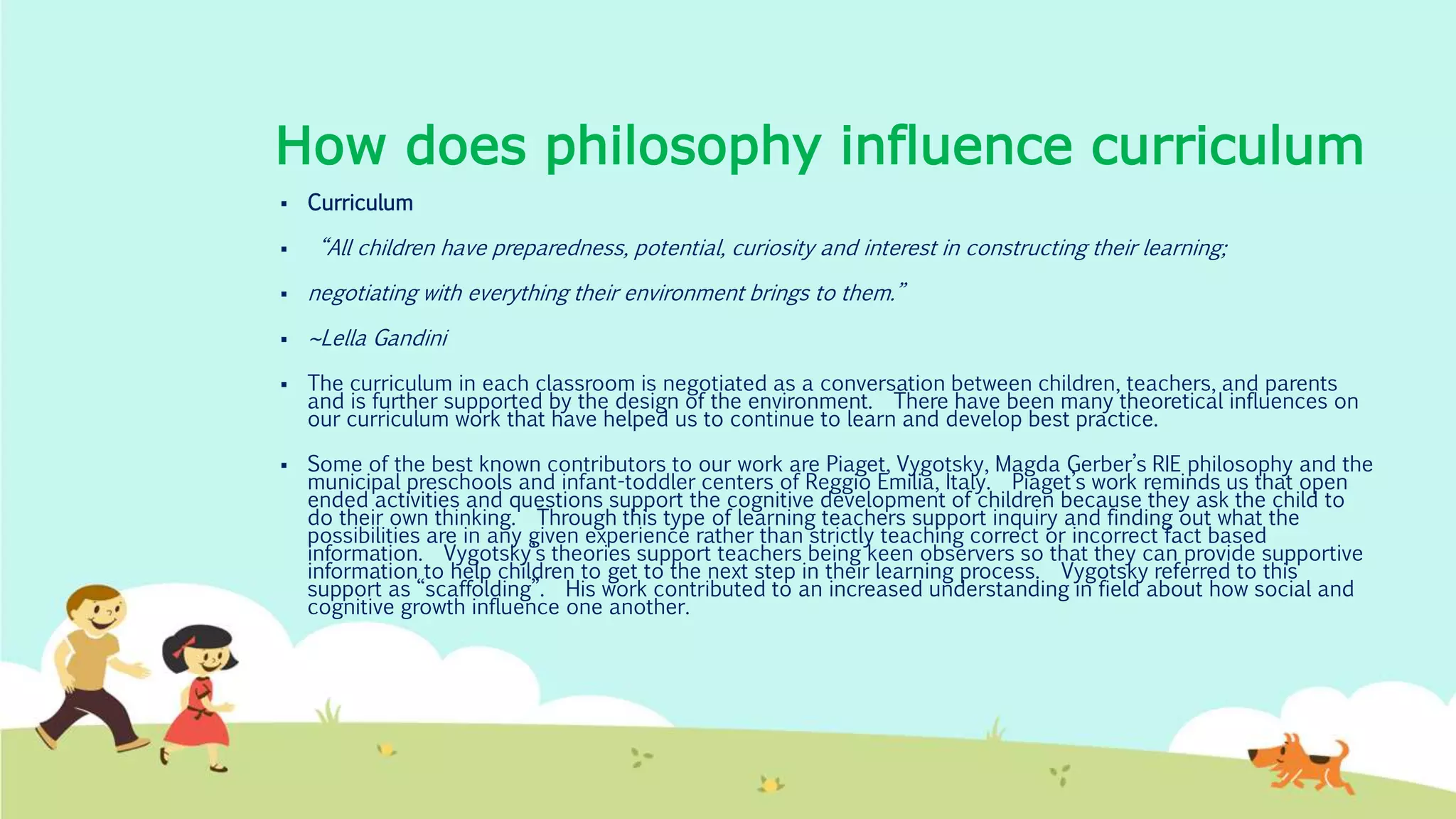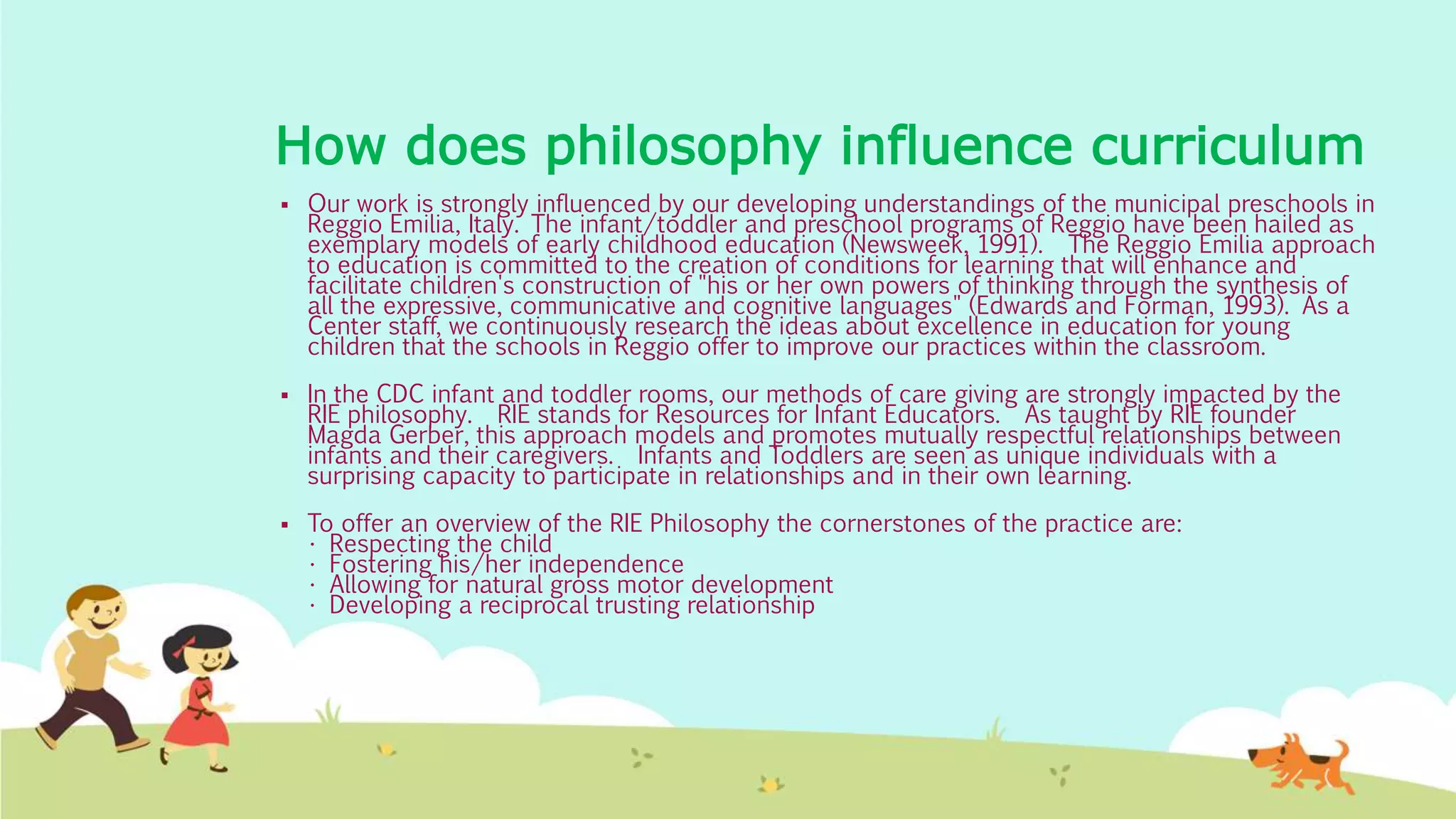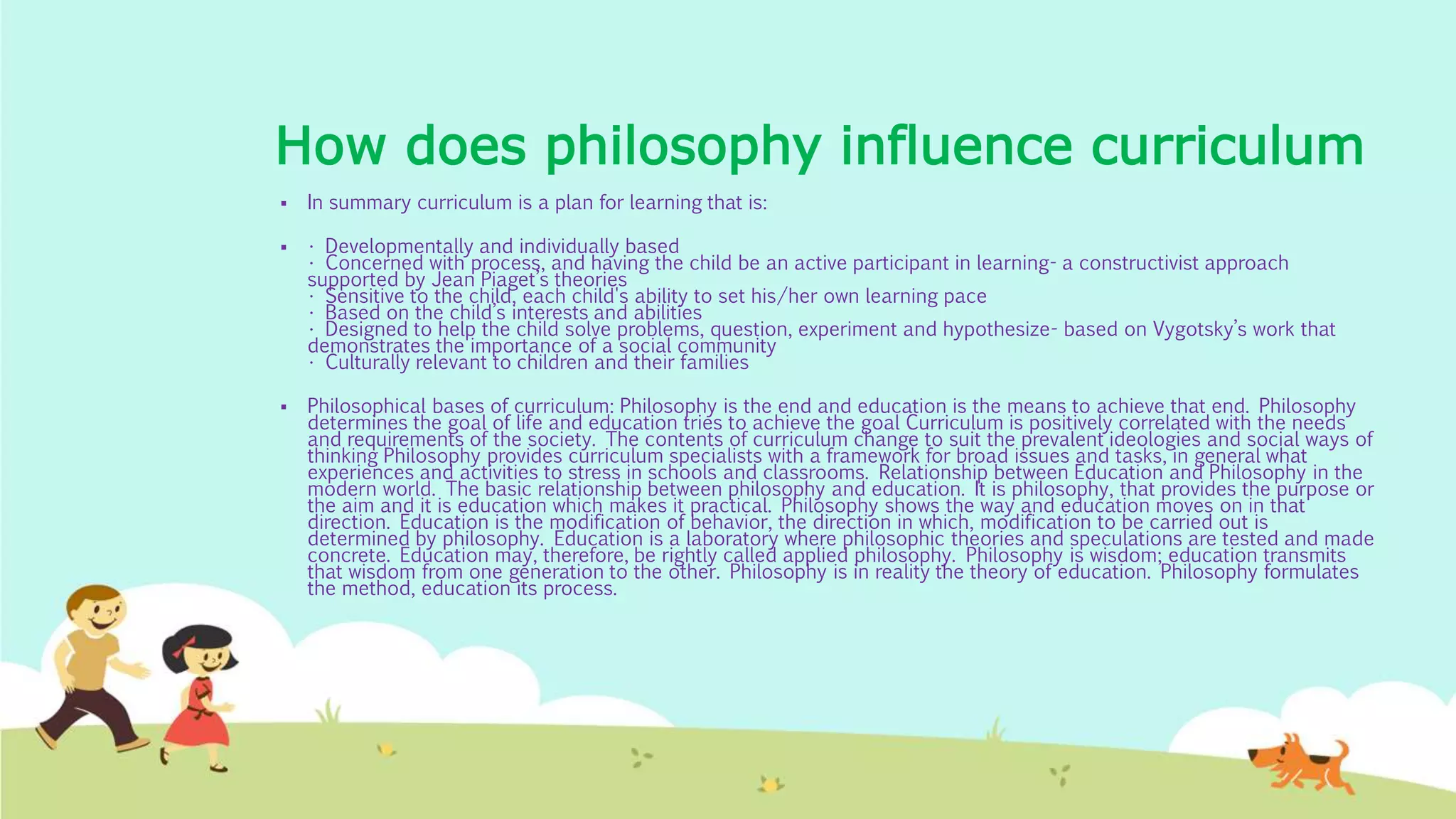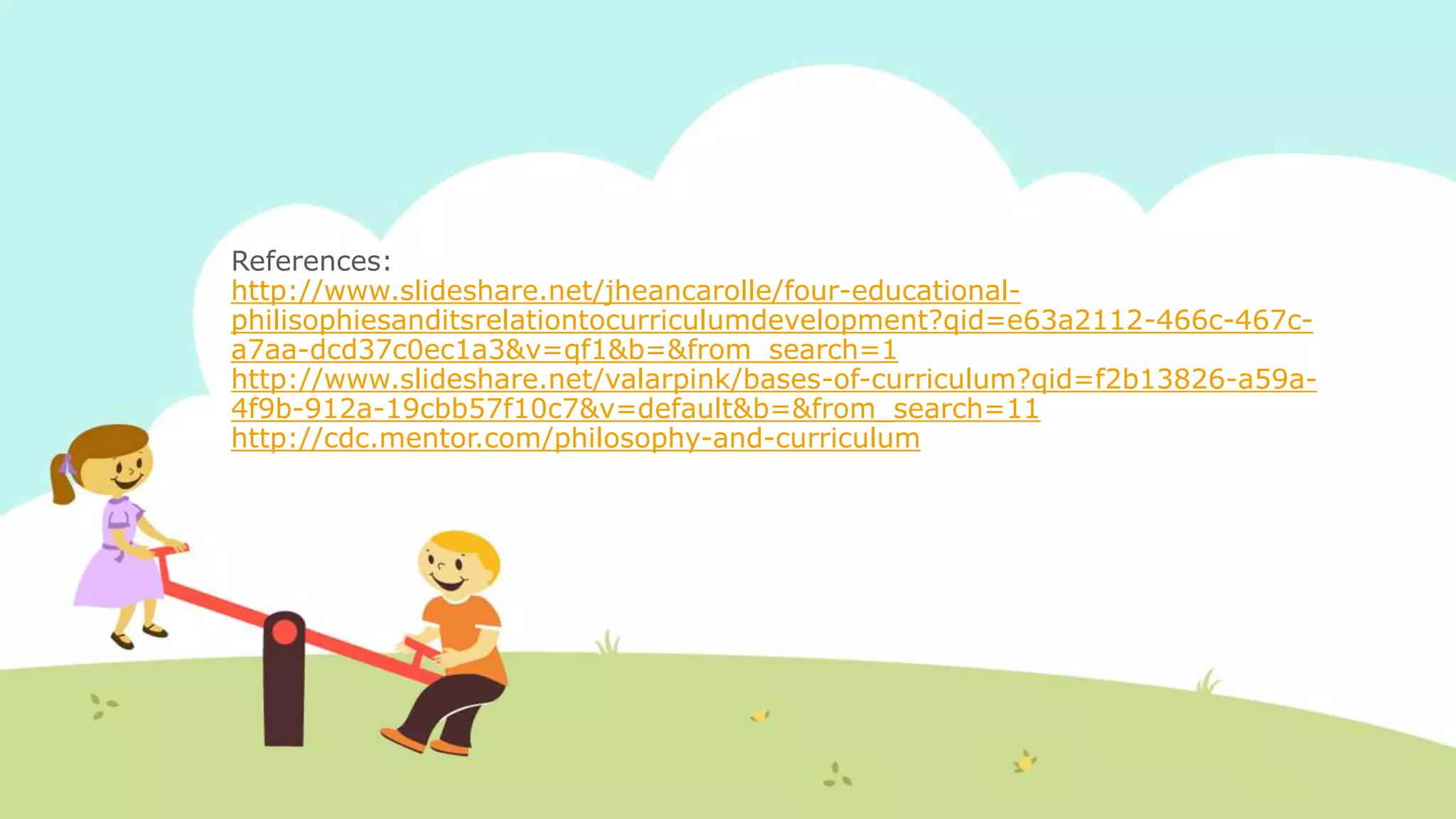This document summarizes four educational philosophies - perennialism, essentialism, progressivism, and reconstructivism - and how they influence curriculum development. It describes the key aspects of each philosophy, including their aims of education, the role of teachers, curriculum focus, and trends. Additionally, it discusses how theories from philosophers like Piaget, Vygotsky, and influences from Reggio Emilia shape the curriculum at a child development center to be developmentally appropriate, child-centered, and focused on active learning through exploration and social interaction. Philosophy guides the overall goals and approaches to education, while curriculum implements these philosophically-driven ideas into specific learning experiences.
